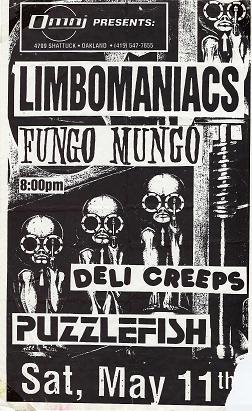[lebanon]
Topic: Middle East
 As I was walking back from the gym today, I crossed paths with a substantial protest march consisting of maybe 150 Lebanese, draped in their red-and-white flags emblazoned with Lebanon’s famous cedar trees and chanting, “What do we want? Syria out!”
As I was walking back from the gym today, I crossed paths with a substantial protest march consisting of maybe 150 Lebanese, draped in their red-and-white flags emblazoned with Lebanon’s famous cedar trees and chanting, “What do we want? Syria out!”
It was a curious sight in a number of ways. It was a further reminder that events in the Middle East have immediate ramifications here in America. As the protesters shouted beneath the windows of the Syrian Mission to the United Nations, I had the thought that this is something they probably couldn’t do in Lebanon itself, at least not without fear.
The protest also made me reflect on just how much has changed in the Middle East since 9/11. We are now facing at least the possibility that Iraq will become a stable democracy, Syria will withdraw from Lebanon, Lebanon will democratize, Egypt will at least make a show of holding multiparty elections, Iran will strike a deal with Europe to halt its nuclear program, Afghanistan will hold viable elections, and the Israelis and Palestinians will at last make peace. Not one of these things has actually happened yet, mind you, but they are all at least possibilities rather than just pipe dreams. And let’s not forget that we’re all buddies with Libya now, too.
For better or worse, the United States invaded Iraq, lying about its motivations and stumbling badly in its management of the aftermath. I disagreed with the invasion at the time, and I continue to believe that it was a mistake. So what if all goes well in the Middle East, and all these distant possibilities turn into solid realities? Will I have been wrong?
No. This is a little like the argument some people make that colonial powers like Britain in India or Japan in Korea weren’t all bad because they developed infrastructure and industry. This is true, of course, but to assess the value or harm of colonialism, you can’t just measure the state of industrial development at the beginning and the end of the colonial periods, because that assumes that without colonialism, progress would have been zero. Yes, Koreans would say, Japan did promote and develop industry, but Koreans were already heading in that direction and would have done it faster and with far less harm to the Korean people. (The most egregious examples of this kind of thinking involve Stalin, who did raise literacy rates and industrialized a nation, but at the cost of destroying that nation and its people for generations and into the present.)
So yes, our invasion of Iraq has certainly had an effect on the region. Without it, Saddam Hussein would likely have remained in power for a long time. Afghanistan, however, would have been invaded by pretty much any American who was president on 9/11, and someone else might have done a more thorough job, perhaps making some meaningful progress in pushing Pakistan and India to compromise instead of cozying up to the Uzbeks. Iran’s reform movement has done best when the U.S. has ignored it, robbing the Iranian reactionaries of their favorite foil. Libya’s negotiated settlement with the U.K. was a longstanding effort, not a result of our invasion of Iraq. And Arafat’s death would almost certainly have shaken the demoralized Palestinians even without our invasion of Iraq.
So the big differences, had we not invaded Iraq, would be that Saddam would still be playing cat-and-mouse under a largely effective sanctions regime, and Syria would be much less frightened. On the other hand, we’d have much greater political capital in the region, and we might well have been able to push Egypt and Saudi Arabia to ease up on the political repression. And we would’ve had a lot more energy to expend on dealing with the real regional threats, Iran and Pakistan, and on North Korea.
That said, we can’t roll back time, and the Bush administration, having stirred things up considerably, now faces a number of historic opportunities to help things settle again in a way that genuinely improves the lot of millions in the region while making America and the world more secure. Should they make the right choices and succeed, it will be to their credit.



 Mildly disappointed, I headed for the cafeteria, but then caught sight of a large crowd gathered in the lobby in front. I almost turned back, but then decided that as the crowd was outside, the cafeteria itself might not be completely swamped.
Mildly disappointed, I headed for the cafeteria, but then caught sight of a large crowd gathered in the lobby in front. I almost turned back, but then decided that as the crowd was outside, the cafeteria itself might not be completely swamped.
 As I was walking back from the gym today, I crossed paths with a substantial protest march consisting of maybe 150 Lebanese, draped in their red-and-white flags emblazoned with Lebanon’s famous cedar trees and chanting, “What do we want? Syria out!”
As I was walking back from the gym today, I crossed paths with a substantial protest march consisting of maybe 150 Lebanese, draped in their red-and-white flags emblazoned with Lebanon’s famous cedar trees and chanting, “What do we want? Syria out!” My friend Daniel pointed me to a fascinating
My friend Daniel pointed me to a fascinating 